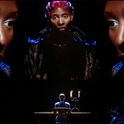By 1631, John Donne knew he was dying. On 25th February, according to his biographer Izaak Walton, Donne, with his “decayed body,” rose before his London congregation—as well as being a poet he was also dean of St Paul’s—and delivered such a “zealous prayer” that many felt he had “preached his own funeral sermon.” He was dead by the end of March.
Delivering one’s own eulogy is an aptly Donnean paradox. Death is everywhere in Donne’s poetry, as it was in his life: he lived through the plague that killed friends and family, lost five children and then saw his beloved wife, Anne, die after giving still birth. Yet, as Katherine Rundell attests in her new biography, even Donne’s poetry about death “is rarely sad: it thrums with strange images of living.”
Rundell, a fellow of All Souls, Oxford, is aware of Donne’s many contradictions: he was “incapable of being just one thing,” she writes. Each of her bitesize chapters focuses on a different side of the poet: “The Hungry Scholar” or “The Inexperienced Expert of Love.” She is particularly good on his love poems, transformative works at once fleshly and metaphysical. Rundell also gives space to some of Donne’s esoteric writing, such as his defence of suicide, Biathanatos.
As we might gather from her book’s zany title, Rundell’s tone is conversational. It’s also infectiously enthusiastic: Donne’s physical beauty “deserved walk-on music, rock-and-roll lute,” she writes. It is a style that might irk fustier scholars, but which belies a staggering amount of learning. Super-Infinite is a refreshing biography—or, in Rundell’s words, an “act of evangelism”—that makes you yearn to read Donne’s glorious writing.












